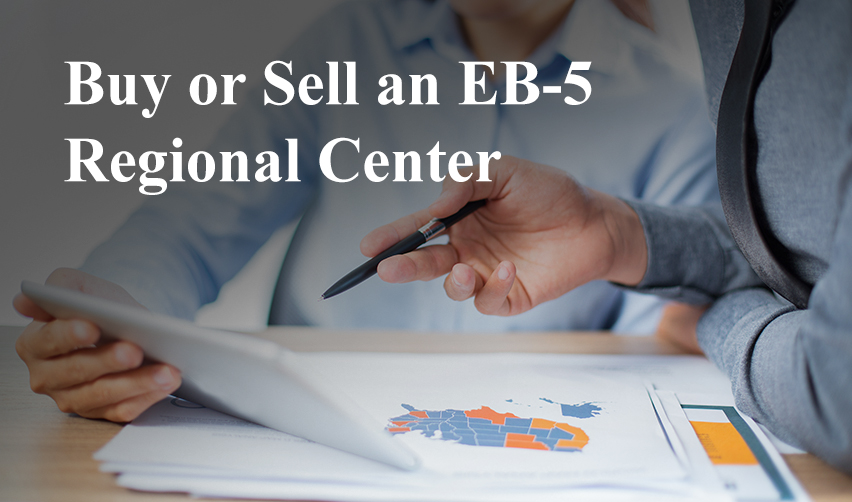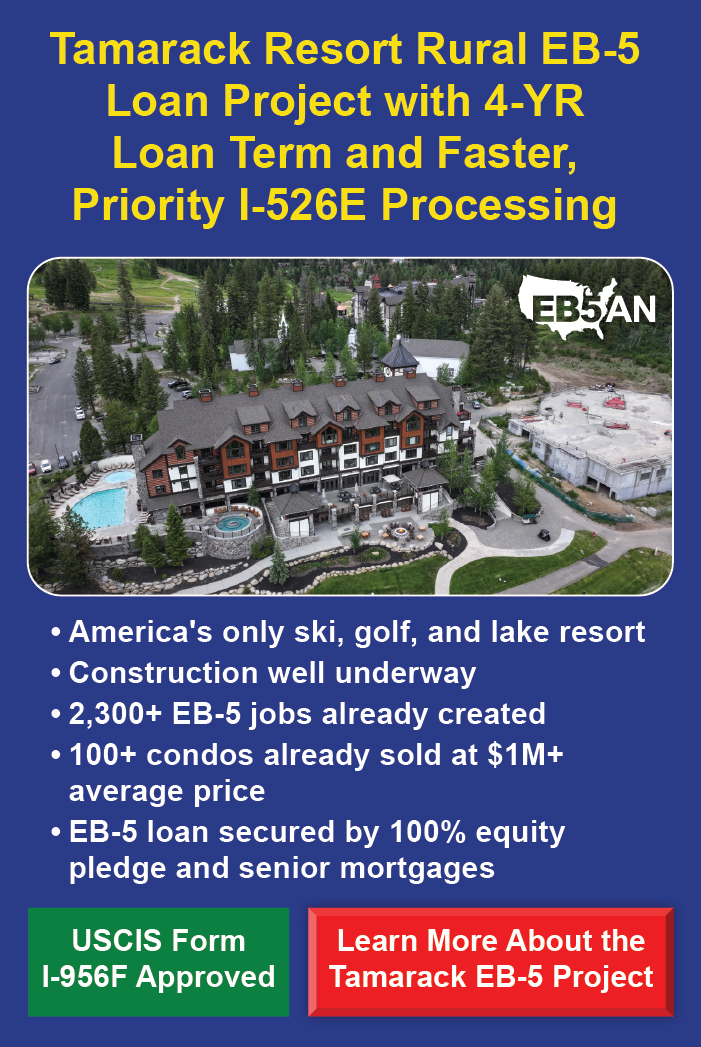A Detailed Guide to Regional Center Acquisitions
Features of the EB-5 Regional Center Program
Advantages of Buying a Regional Center
Marketing the Sale of a Regional Center
The Due Diligence Process for Purchasing a Regional Center
- The Importance of Due Diligence in Regional Center Transactions
- Examining the Regional Center’s Records
- Reviewing USCIS Documentation
The Acquisition Process for Regional Centers
EB5AN Is a Leading Consultant for Regional Center Acquisitions
Get Help Buying or Selling an EB-5 Regional Center
EB-5 investment financing is a much sought-after source of funding among businesses and real estate developments in a variety of industries. EB-5 capital is often available at below-market rates, so it has become increasingly popular.
Much of the EB-5 investment industry’s recent success has been propelled by the EB-5 Regional Center Program. Under this investment option, EB-5 visa applicants’ funds are managed by business entities known as regional centers. Regional centers are responsible for distributing the capital to its corresponding business or real estate development.
Moreover, after nearly a year of suspension, the regional center program was reauthorized by a June 24, 2022, U.S. federal district court decision. As the regional center program has historically been the most popular investment model for EB-5 investors, we expect a proliferation of new regional center-sponsored projects. We also expect more businesses to file for a new regional center designation or to buy an existing regional center.
Features of the EB-5 Regional Center Program
The regional center investment model allows investment funds from multiple EB-5 applicants to be pooled together, making larger projects possible and often reducing foreign investors’ immigration risk. In contrast, EB-5 projects without a sponsoring regional center can accept funding from only one EB-5 investor.
Another unique benefit that is exclusive to EB-5 regional center-sponsored projects is indirect and induced job creation. To qualify for an EB-5 visa, an investor must demonstrate that their funding was used to create at least 10 U.S. jobs. If an EB-5 investment fund creates W-2, direct jobs, these will have to be sustained for at least two years on a full-time basis. However, regional center projects have the option to count two more types of employment: indirect and induced jobs from construction expenditures and revenue creation. In this way, a project can fulfill the job creation requirement simply by documenting the construction costs and proving realized revenue.
This added flexibility for EB-5-compliant employment creation strengthens investors’ chances of obtaining an EB-5 visa while increasing the demand for regional center investments.
Advantages of Buying a Regional Center
Any private or public business entity, such as a limited liability company (LLC) or a limited partnership (LP), can file Form I-956 to apply for regional center designation from United States Citizenship and Immigration Services (USCIS). The I-956 application must demonstrate that the entity will comply with USCIS policies and that the regional center’s projects will contribute to the EB-5 program’s goals of promoting economic growth and employment creation. Regional center designation allows an entity to access funding from multiple EB-5 investors and work with industry-leading businesses and real estate developers.
Avoid Considerable Expenses
The overall cost of obtaining regional center designation from USCIS can be considerable; Form I-956 requires detailed business plans and economic impact reports. Moreover, the filing fee for the I-956 application is $17,795.
Raise EB-5 Funding Immediately
Prospective regional center owners should also be mindful of the potentially lengthy adjudication times for Form I-956. As of July 2022, there is no estimated timeline or processing statistics available for this relatively new application. A real estate developer, for example, may be unable to wait for several months before being allowed to raise EB5 investment capital for their project.
Fortunately, business owners can circumvent both of these challenges by purchasing an existing regional center instead of applying for USCIS designation. An existing regional center for sale may also have a well-established reputation among EB-5 investors and developers, making it easier to raise funding. EB-5 promoters, migration agents, immigration attorneys, and other professionals may be more inclined to work with a regional center that has a proven track record and can immediately accept new EB-5 investment funding.
Approved regional centers are often purchased through an equity acquisition, in which the regional center’s equity is sold (usually in its entirety) to the buyer, granting them ownership. Buyers in equity acquisitions receive all of the regional center’s assets as well as its liabilities.
Before embarking on the acquisition process, potential buyers or sellers should keep in mind that regional center acquisitions are complex and require significant expertise in the fields of corporate transactions, mergers and acquisitions, and EB-5 immigration.
Marketing the Sale of a Regional Center
Regional center owners interested in selling should first consult with an EB-5 professional about the sale process. An experienced EB-5 professional can help clients get in touch with potential buyers and remain compliant with USCIS regulations during the acquisition process.
Regional center owners can also reach out directly to other regional centers that might be interested in expanding the geographic scope of their project areas. EB-5 industry websites, journals, and in-person or virtual events may provide excellent opportunities to advertise a regional center for sale.
Before offering to sell regional center, its managers should keep in mind that the new owners will be responsible for any active EB-5 projects under the regional center’s sponsorship.
The Due Diligence Process for Purchasing a Regional Center
The Importance of Due Diligence in Regional Center Transactions
Prospective buyers must carry out the due diligence process carefully before deciding on a regional center. They will be responsible for managing active projects and ensuring compliance with USCIS accounting and transparency policies, marketing regulations, liabilities, and Securities and Exchange Commission (SEC) regulations, among other aspects of sponsoring an EB-5 offering. It is likewise important to note that an EB-5 investor’s funds must remain “at risk”—that is, invested in the project—until the investor files the I-829 petition to obtain a permanent Green Card.
Moreover, if a regional center for sale has been inactive for a significant period, USCIS may terminate it, arguing that it no longer promotes economic growth and job creation.
Examining the Regional Center’s Records
Potential buyers must examine the regional center’s corporate, financial, securities, and legal records as part of the due diligence process. The following list includes some of the principal documentation to be reviewed.
- Organizational records, including articles of incorporation, the formation and operating agreements, an Employment Identification Number (EIN) notice, and LLC company agreements (if applicable).
- Annual reports to stockholders, records of any mergers, acquisitions, or administrative changes, and the regional center’s management structure.
- The regional center’s stock certificates and related documents, including stock purchase agreements, licenses to issue or transfer securities, and marketing communications for the regional center’s offerings.
- Records of the regional center’s liabilities, debt obligations, and borrowings.
- A record of any litigation or audits in which the regional center for sale has been involved.
Reviewing USCIS Documentation
Reviewing the regional center’s USCIS documentation is an indispensable stage of the due diligence process. The seller should provide a copy of the I-956 approval notice, Form I-956G and previously-used I-924A annual certifications sent to USCIS, records of compliance reviews, and any significant amendments made to the regional center’s management or operations structure since it received USCIS designation. (Following the enactment of the EB-5 Reform and Integrity Act of 2022 in March 2022, USCIS introduced several new forms for regional centers. Existing regional centers may have to provide outdated versions of the forms.)
If USCIS has at any point issued a request for evidence (RFE), a notice of intent to deny (NOID), or a notice of intent to terminate (NOIT), the seller must prove that it responded in a timely manner and addressed the compliance issues. If a regional center has lost its USCIS designation, it is no longer authorized to manage EB-5 funding.
The Acquisition Process for Regional Centers
Once the potential buyer has completed the due diligence process and decides to move forward with the purchase, both parties must prepare the relevant contracts and transaction documents.
The buyer typically drafts the basic terms for acquisition in a letter of intent (LOI) and sends it to the regional center’s management for approval. This document is distinct from and precedes the definitive purchase and sale contract. It stipulates the purchase price, the escrow arrangement (if any) to be used, the possible use of a broker, and the terms of the closing process.
The Escrow Agreement
If a percentage or all of the buyer’s funds will be held in escrow before disbursement, both parties must sign an escrow agreement. This document outlines the specific contractual obligations that must be met for the funds to be released from escrow, identifies the bank serving as the escrow agent and its duties, and indicates the fees to be paid during the escrow process.
A percentage of the buyer’s funds may be held in escrow until USCIS approves the Amendment of Regional Center Designation (see below).
Closing the Sale
An assignment of membership interest document must be signed by both parties for the seller’s membership interest in the regional center to be transferred. This contract indicates the sale price and what percentage of the membership interest will be transferred without recourse. All members of the regional center’s management must also submit formal letters of resignation.
Then, the parties sign a formal membership interest purchase agreement. Along with the terms agreed to in the assignment of membership interest and escrow documents, this agreement states that the regional center for sale has no undisclosed liabilities or major litigation. Information on prior NOITs is also included, as well as the obligations of the parties if they breach the terms of the agreement. Documentation proving the regional center’s USCIS designation, geographic coverage areas, and other features is attached to the membership interest purchase agreement.
The USCIS Amendment of Regional Center Designation
An important component of the membership interest purchase agreement is the terms for the Amendment of Regional Center Designation to be submitted to USCIS. The regional center amendment notifies USCIS of the changes in the regional center’s name and ownership, dispensing basic information on the transfer of ownership, the date the final sale agreement was executed, and the buyer’s new ownership structure.
USCIS may approve the regional center amendment, send an RFE, or send a NOID. The transaction documents should include a predetermined strategy for responding to any adverse decision from USCIS. In the event that the amendment is ultimately denied despite appeals and the exhaustion of other administrative remedies, any funds in escrow may return to the buyer.
On the other hand, upon approval of the amendment, any remaining funds in escrow are typically disbursed to the seller.
Selling the regional center is likely to constitute a material change—a significant alteration to the regional center’s ownership structure—under USCIS regulations. Therefore, the buyer must be aware of how the ownership change may affect investors in any existing projects under the regional center’s sponsorship. Investors in active projects will have to be disclosed of the ownership change.
EB5AN Is a Leading Consultant for Regional Center Acquisitions
EB5AN is a leading EB-5 industry consultancy, project manager, and regional center operator. We own more than 10 EB-5 regional centers with a broad geographic coverage spanning much of the United States, and we have facilitated the sale of more than 10 regional centers. Our team is available to offer its expertise to potential EB-5 project operators and regional center owners interested in buying or selling an existing regional center. Prospective regional center buyers and sellers can schedule a free meeting with our team for more information.














